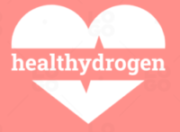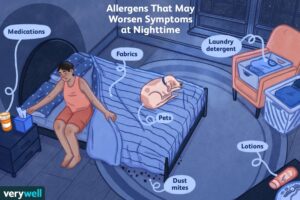
Introduction:
Pollen allergy is a common condition that affects millions of people worldwide. It is caused by an overreaction of the immune system to the pollen grains released by plants. When the immune system recognizes pollen as a harmful substance, it produces antibodies that trigger the release of chemicals such as histamine.
These chemicals cause allergy symptoms such as sneezing, runny nose, itchy eyes, and skin rashes. While avoiding pollen is the best way to prevent pollen allergies, there are certain foods that can worsen the symptoms of pollen allergy. In this article, we will discuss the foods that people with pollen allergies should avoid.
Foods to Avoid for Pollen Allergy:

Raw fruits and vegetables:
Raw fruits and vegetables can worsen the symptoms of pollen allergy in some people. This is because they contain proteins that are similar to the proteins found in pollen. When the body tries to digest these proteins, it can trigger an allergic reaction. Some of the fruits and vegetables that people with pollen allergies should avoid include apples, pears, peaches, plums, cherries, kiwis, celery, carrots, and peppers. Cooking these foods can break down the proteins and reduce the risk of an allergic reaction.
Nuts:
Some people with pollen allergies may also be allergic to certain nuts such as hazelnuts, almonds, and walnuts. These nuts can cross-react with pollen and trigger an allergic reaction. It is important to read food labels carefully and avoid foods that contain these nuts.
Spices:
Spices such as coriander, cumin, fennel, and mustard can worsen the symptoms of pollen allergy in some people. These spices can cross-react with pollen and cause an allergic reaction. People with pollen allergies should read food labels carefully and avoid foods that contain these spices.
Alcohol:
Alcohol can worsen the symptoms of pollen allergy in some people. This is because some types of alcohol such as wine and beer contain histamines, which can trigger an allergic reaction. People with pollen allergies should limit their alcohol intake or avoid it altogether.
Processed Foods:
Processed foods such as packaged snacks, baked goods, and fast food can contain preservatives, artificial colors, and flavors that can worsen the symptoms of pollen allergy. People with pollen allergies should choose fresh, whole foods and avoid processed foods as much as possible.
What foods are related to pollen allergy?
People with pollen allergies may experience cross-reactivity with certain foods. This is because some proteins found in fruits, vegetables, and nuts are similar to the proteins found in pollen, and can cause an allergic reaction in people who are sensitive to pollen. Some common foods that are related to pollen allergies include:
- Apples, pears, peaches, plums, cherries, kiwis (related to birch pollen allergy)
- Melons, watermelons, cucumbers (related to ragweed pollen allergy)
- Bananas, avocados (related to latex allergy)
- Almonds, hazelnuts, walnuts (related to tree pollen allergy)
- Celery, parsley, carrots (related to celery-carrot-mugwort-spice syndrome)
What fruit helps with pollen allergies?
While no fruit can directly cure or eliminate pollen allergies, some fruits may help alleviate allergy symptoms due to their anti-inflammatory and antioxidant properties. For example, citrus fruits like oranges, lemons, and grapefruits are high in vitamin C, which can boost the immune system and reduce inflammation.
Pineapple contains bromelain, an enzyme that has been shown to reduce inflammation and improve respiratory function. Apples, when cooked, can break down the proteins that cause cross-reactivity with birch pollen allergy. However, it is important to note that individual reactions to specific fruits can vary, and some people with pollen allergies may still experience reactions to certain fruits.
What is the best remedy for pollen allergies?
The best remedy for pollen allergies depends on the severity of the symptoms and individual preferences. Here are some remedies that may help alleviate pollen allergy symptoms:
- Over-the-counter antihistamines: Antihistamines can help relieve itching, sneezing, and runny nose caused by allergies.
- Nasal sprays: Nasal sprays containing corticosteroids can reduce inflammation in the nasal passages and relieve congestion.
- Eye drops: Over-the-counter eye drops can help relieve itchy, red, and watery eyes.
- Allergy shots: Allergy shots, also known as immunotherapy, can help desensitize the immune system to specific allergens over time and reduce the severity of allergy symptoms.
- Avoiding pollen exposure: Staying indoors during high pollen counts, keeping windows and doors closed, and wearing a mask when outdoors can help reduce exposure to pollen.
It is important to talk to a healthcare provider before starting any new medication or treatment for pollen allergies, as some remedies may not be suitable for everyone.
Grass pollen allergy foods to avoid:
This line refers to the foods that people with grass pollen allergy should avoid. Grass pollen is a common allergen that can cause hay fever and other allergy symptoms. Some of the foods that people with grass pollen allergy should avoid include raw fruits and vegetables, nuts, and spices, as they can contain proteins that are similar to the proteins found in grass pollen.
Birch tree allergy food list:
This line refers to a list of foods that people with birch tree allergy should avoid. Birch trees are common sources of pollen that can cause allergy symptoms such as sneezing, runny nose, and itchy eyes. Some of the foods that people with birch tree allergy should avoid include apples, pears, peaches, plums, cherries, kiwis, and almonds, as they can cross-react with birch pollen and trigger an allergic reaction.
Birch pollen allergy:
This line refers to an allergy to birch pollen, which is a common allergen that can cause hay fever and other allergy symptoms. People with birch pollen allergy may experience symptoms such as sneezing, runny nose, and itchy eyes during the pollen season.
Tree pollen allergy foods to avoid:
This line refers to the foods that people with tree pollen allergy should avoid. Tree pollen is a common allergen that can cause hay fever and other allergy symptoms. Some of the foods that people with tree pollen allergy should avoid include raw fruits and vegetables, nuts, and spices, as they can contain proteins that are similar to the proteins found in tree pollen.
Olive tree allergy foods to avoid:
This line refers to the foods that people with olive tree allergy should avoid. Olive trees are common sources of pollen that can cause allergy symptoms such as sneezing, runny nose, and itchy eyes. Some of the foods that people with olive tree allergy should avoid include raw fruits and vegetables, nuts, and spices, as they can contain proteins that are similar to the proteins found in olive tree pollen.
Timothy grass allergy foods to avoid:
This line refers to the foods that people with timothy grass allergy should avoid. Timothy grass is a common allergen that can cause hay fever and other allergy symptoms. Some of the foods that people with timothy grass allergy should avoid include raw fruits and vegetables, nuts, and spices, as they can contain proteins that are similar to the proteins found in timothy grass pollen.
Can I eat cooked fruits and vegetables if I have pollen allergy?
Yes, cooking fruits and vegetables can break down the proteins that can trigger an allergic reaction. However, some people may still be sensitive to cooked fruits and vegetables, so it is best to consult a doctor if you have any concerns.
Can I eat peanut butter if I have pollen allergy?
Most people with pollen allergy can safely eat peanut butter. However, some people may be allergic to peanuts, which are not related to pollen. If you have a peanut allergy, you should avoid peanut butter.
Can I drink coffee if I have pollen allergy?
Coffee does not contain pollen and is generally safe for people with pollen allergy. However, some people may be sensitive to caffeine, which can worsen allergy symptoms.
Can I eat dairy products if I have pollen allergy?
A. Dairy products do not contain pollen and are generally safe for people with pollen allergy. However, some people may be sensitive to lactose, which is found in milk and dairy products. If you have lactose intolerance, you should avoid dairy products or choose lactose-free alternatives.
conclusion
In conclusion, pollen allergies can cause a variety of symptoms that can significantly impact quality of life. While avoiding exposure to pollen is the best way to prevent allergy symptoms, this is not always possible. For people with pollen allergies, understanding which foods are related to their allergies can help them manage their symptoms more effectively.
Additionally, there are a variety of remedies available that can help alleviate allergy symptoms, including over-the-counter medications, nasal sprays, eye drops, and allergy shots. It is important to work with a healthcare provider to determine the best course of treatment for individual needs. By taking steps to manage pollen allergies, people can reduce their symptoms and enjoy a better quality of life during pollen season.




